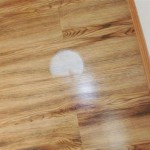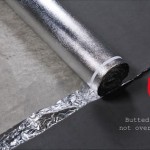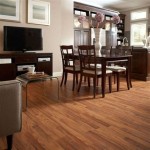Choosing the Right Balcony Flooring Material: A Comprehensive Guide
Balconies are wonderful extensions of indoor living spaces, offering fresh air, sunlight, and breathtaking views. However, the success of any balcony depends heavily on its flooring. Choosing the right material is crucial for both aesthetic appeal and durability. This article will delve into the key factors to consider when selecting balcony flooring, providing a comprehensive guide to help you make an informed decision.
Factors to Consider
Before diving into specific materials, it's essential to assess your needs and preferences. The following factors will guide your decision:
- Budget: Flooring costs can vary significantly depending on material, installation, and maintenance requirements. Establish a budget range to narrow down your options.
- Climate: The climate where you live plays a crucial role. Consider factors like temperature extremes, rainfall, and humidity levels. Some materials are more resilient to weather conditions than others.
- Traffic: Anticipate the level of foot traffic your balcony will receive. High traffic areas may necessitate materials with greater durability and scratch resistance.
- Aesthetic: The overall aesthetic of your balcony and home should align with the chosen flooring. Consider the desired style, color, and texture.
- Maintenance: Some materials require more maintenance than others. Assess your willingness to invest time in cleaning, sealing, or replacing flooring.
Popular Balcony Flooring Materials
With the factors in mind, here are some of the most popular balcony flooring materials:
1. Tile
Tile is a versatile and durable option for balconies. It comes in various materials, colors, and sizes, allowing for diverse design possibilities. Ceramic and porcelain tiles are particularly well-suited for outdoor areas due to their water resistance, stain resistance, and durability.
- Pros: Durable, water-resistant, wide selection of styles, easy to clean, relatively low maintenance.
- Cons: Can be slippery when wet, may require sealing for outdoor use, can be cold to the touch in cooler weather.
2. Hardwood
Hardwood flooring can add a touch of elegance and warmth to a balcony. While it may not be the most practical choice for high-traffic areas, it's a beautiful option for smaller balconies with limited foot traffic. Look for hardwoods that are naturally resistant to water and moisture, such as teak, ipe, and mahogany.
- Pros: Beautiful, natural look, warm to the touch, durable if properly maintained.
- Cons: Can be expensive, requires regular sealing and maintenance, susceptible to scratches and dents, not ideal for harsh climates.
3. Composite Decking
Composite decking is a popular choice for balconies due to its low maintenance requirements and durability. It's a blend of wood fibers and recycled plastic, offering the look of wood without the need for constant upkeep.
- Pros: Durable, scratch-resistant, water-resistant, low maintenance, various colors and styles available.
- Cons: Can be more expensive than some other options, may fade over time, not as aesthetically pleasing as natural wood.
4. Pavers
Pavers are individual blocks of stone or concrete that can be laid together to create a durable and stylish balcony floor. They come in various colors, shapes, and sizes, offering versatility in design.
- Pros: Durable, weather-resistant, easy to replace individual pavers if damaged, wide range of designs available.
- Cons: Can be more expensive than some other options, requires proper installation to ensure stability, may require sealing for longevity.
5. Artificial Turf
Artificial turf provides a soft and comfortable surface for a balcony, offering a low-maintenance alternative to grass. It's particularly suitable for balconies with limited space and those who want a lush green area.
- Pros: Soft and comfortable, low maintenance, water-resistant, environmentally friendly.
- Cons: Can get hot in direct sunlight, may attract pet waste, not as aesthetically pleasing as natural grass.
Choosing the Right Material for You
Ultimately, the best balcony flooring material depends on your specific needs, budget, and preferences. Carefully consider the factors discussed earlier, explore the available options, and consult with experienced professionals to make an informed decision. With the right materials and meticulous planning, your balcony can become a beautiful and functional extension of your home.

A Complete Guide To Balcony Flooring Design Cafe

Balcony Flooring Options Porcelain Pavers And Interlocking Deck Tiles

Balcony Flooring Options Porcelain Pavers And Interlocking Deck Tiles

Balcony Flooring Options Porcelain Pavers And Interlocking Deck Tiles

The 5 Best Flooring Options For Your Balcony
What Is The Best Flooring Material For Balcony

A Guide To Balcony Flooring Beautiful Homes

A Complete Guide To Balcony Flooring Design Cafe

A Complete Guide To Balcony Flooring Design Cafe

Balconies The Materials Used
Related Posts








